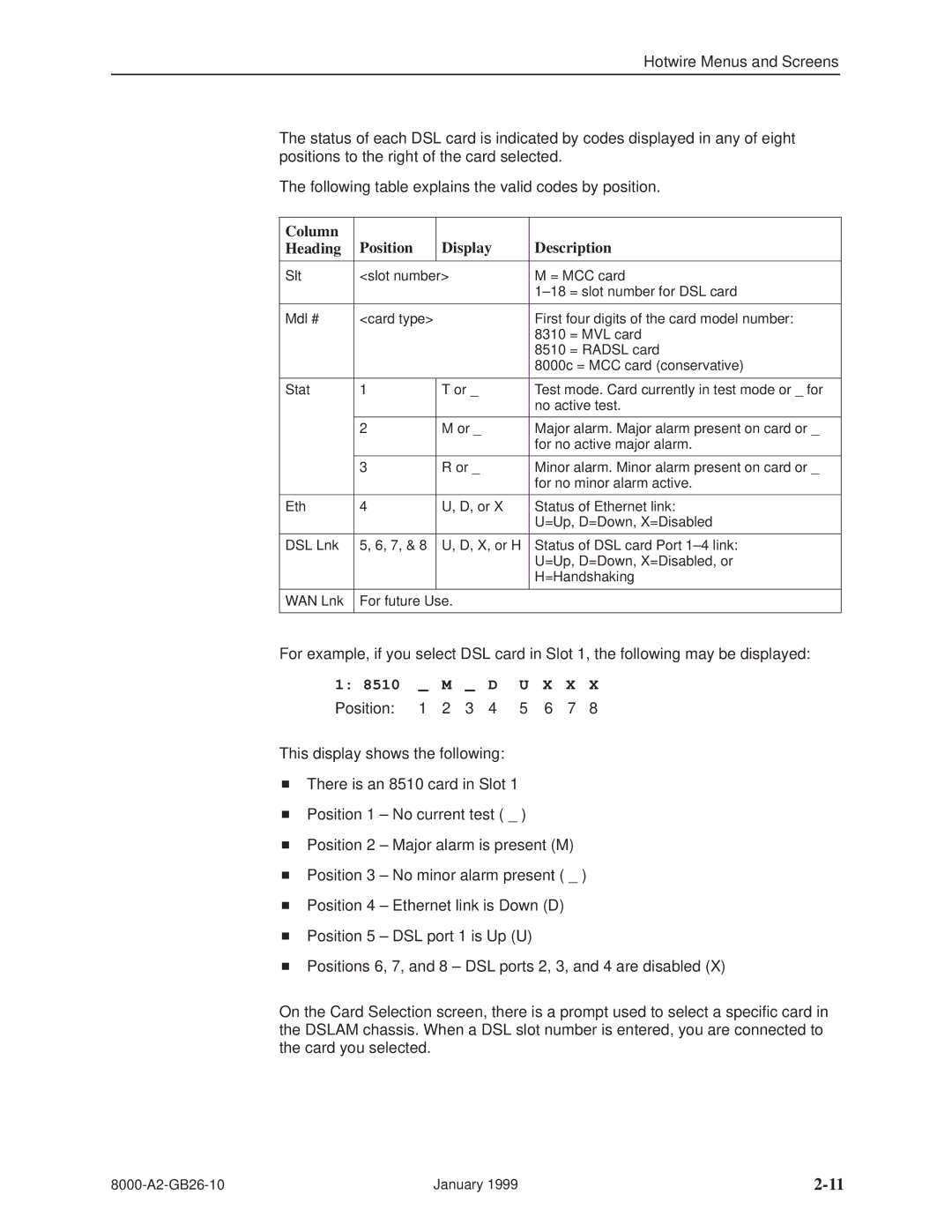
Hotwire Menus and Screens
The status of each DSL card is indicated by codes displayed in any of eight positions to the right of the card selected.
The following table explains the valid codes by position.
Column | Position | Display | Description | |
Heading | ||||
|
|
|
| |
Slt | <slot number> | M = MCC card | ||
|
|
| 1±18 = slot number for DSL card | |
|
|
|
| |
Mdl # | <card type> |
| First four digits of the card model number: | |
|
|
| 8310 | = MVL card |
|
|
| 8510 | = RADSL card |
|
|
| 8000c = MCC card (conservative) | |
|
|
|
|
|
Stat
1
2
T or _ | Test mode. Card currently in test mode or _ for |
| no active test. |
M or _ | Major alarm. Major alarm present on card or _ |
| for no active major alarm. |
|
|
3
R or _
Minor alarm. Minor alarm present on card or _ for no minor alarm active.
Eth | 4 | U, D, or X | Status of Ethernet link: |
|
|
| U=Up, D=Down, X=Disabled |
|
|
|
|
DSL Lnk | 5, 6, 7, & 8 | U, D, X, or H | Status of DSL card Port 1±4 link: |
|
|
| U=Up, D=Down, X=Disabled, or |
|
|
| H=Handshaking |
|
|
|
|
WAN Lnk | For future Use. |
| |
|
|
|
|
For example, if you select DSL card in Slot 1, the following may be displayed:
1: 8510 _ M _ D U X X X
Position: 1 2 3 4 5 6 7 8
This display shows the following:
HThere is an 8510 card in Slot 1
HPosition 1 ± No current test ( _ )
HPosition 2 ± Major alarm is present (M)
HPosition 3 ± No minor alarm present ( _ )
HPosition 4 ± Ethernet link is Down (D)
HPosition 5 ± DSL port 1 is Up (U)
HPositions 6, 7, and 8 ± DSL ports 2, 3, and 4 are disabled (X)
On the Card Selection screen, there is a prompt used to select a specific card in the DSLAM chassis. When a DSL slot number is entered, you are connected to the card you selected.
January 1999 |
